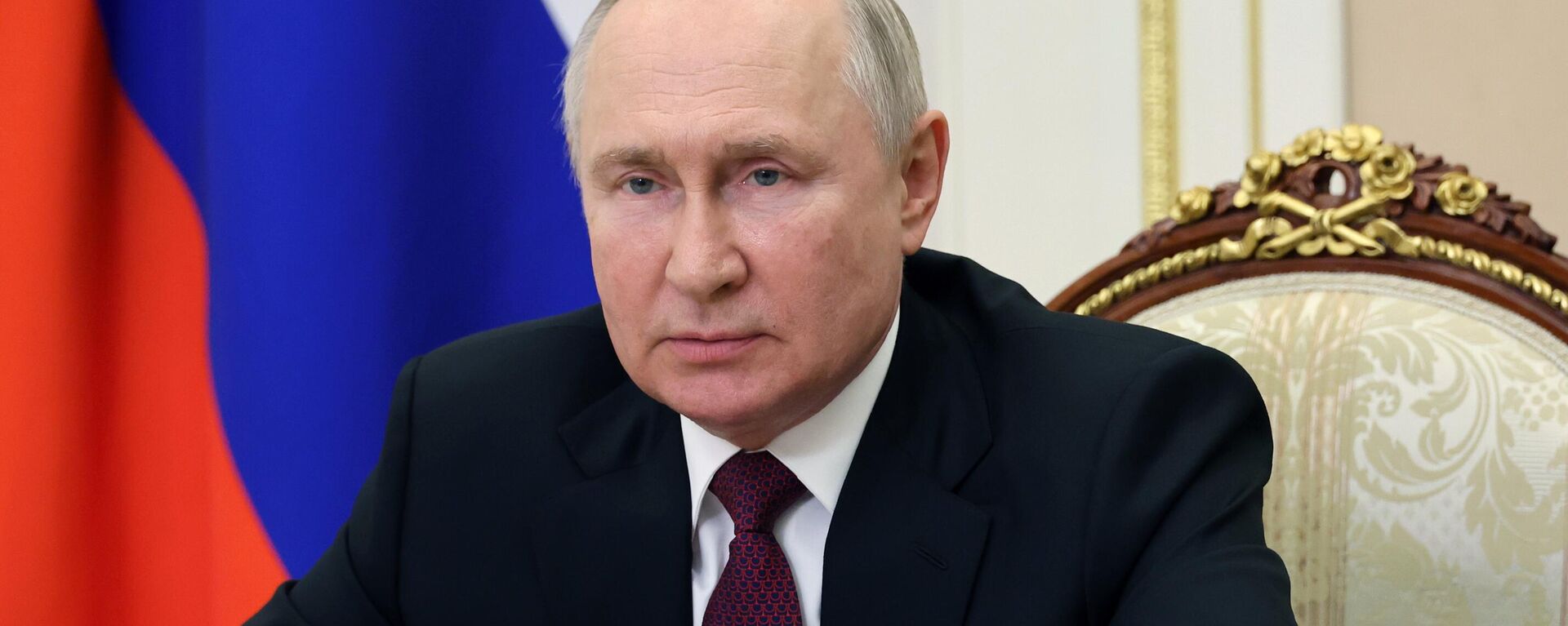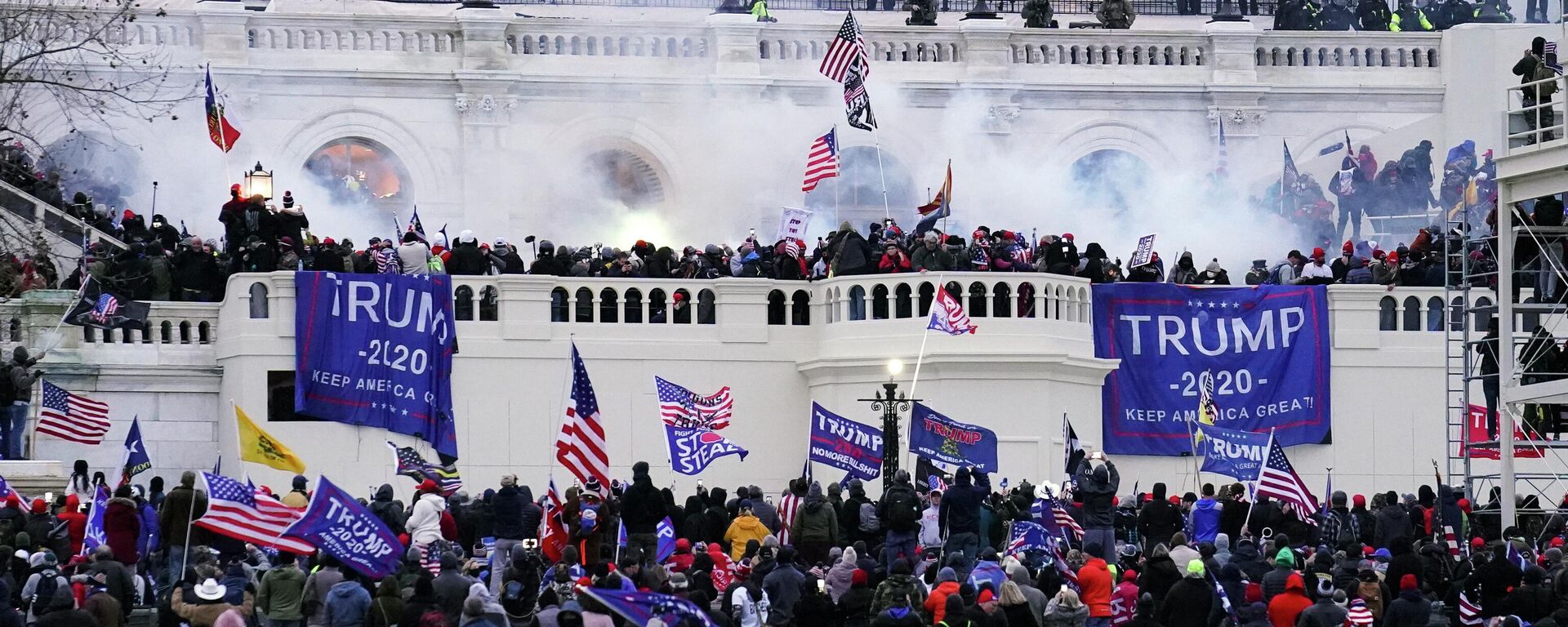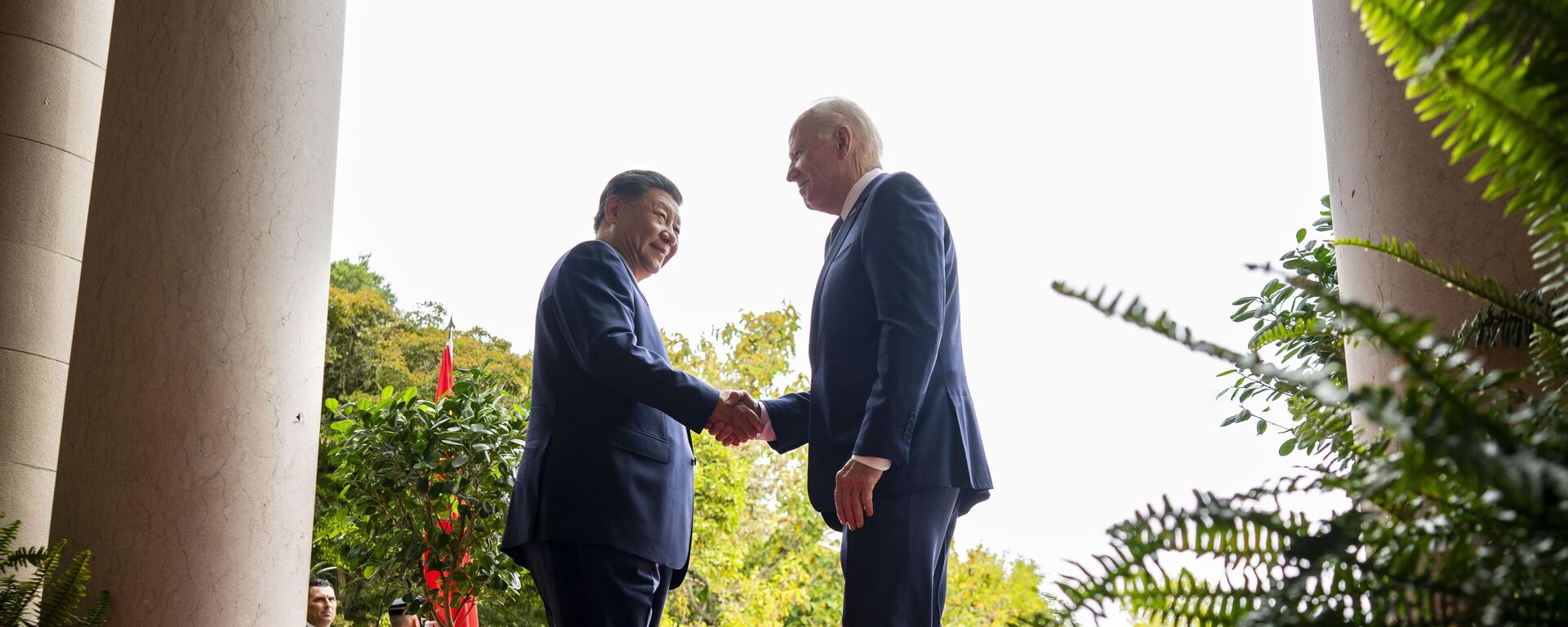Realist Approach Could Help President-Elect Milei Steer Argentina Out of Crisis - Researcher

CC0 / /
Subscribe
Argentine libertarian candidate Javier Milei has won the presidential election by gaining 56% of the vote, while his rival, Minister of Economy Sergio Massa, got 44% and conceded. What does Milei's victory mean for Argentina?
Javier Milei, 53, a self-described "anarcho-capitalist", who was previously seen as an outsider, has come out on top.
On the campaign trail Milei promised to ditch the nation's currency, the peso, and "dollarize" the economy; cut public spending; abolish Argentina's Central Bank; and, on top of that, privatize the pension system. Some media compared Milei to Donald Trump, while the libertarian candidate has never concealed his admiration for the former American president.
"The choice made by Argentine voters is easily explained by the fact that the country has been facing hyperinflation," Dr. Vinicius Vieira, a research associate in international relations at the University of Sao Paulo and an associate professor at the Armando Alvares Penteado Foundation, told Sputnik. "Living standards have declined under the Peronist rule, led by President Alberto Fernandez."
Argentinians Fed Up With Left and Right
Per Vieira, it was hard for Massa, a Peronista politician and economy minister, to beat Milei over the public's frustration with Argentina's economic hurdles. The country's gross domestic product (GDP) shrank 4.9% in the second-quarter of 2023, when compared to 2022, and is projected to contract even further. To make matters even worse, Argentina's inflation reached a staggering 143% in October.
"Argentinians are clearly fed up with both the left, the Peronistas and the right, led by former President Mauricio Macri, who was in office between 2015 and 2019. His candidate, Patricia Bullrich, didn't make it through the runoff. Therefore, they were left with no other choice but to support Milei."
Still, Vieira expressed concerns about Milei's economic program, especially when it comes to increasing the country's dependence on the US dollar: "Dollarization, as Milei promises implies in having dollars, something that Argentina doesn't own on this stage given the crisis of liquidity that it has been facing," he said. Similarly, the researcher does not believe that shutting the Central Bank down – one of Milei's election promises – would help. "So Milei has no other choice but to infringe on painful economic reforms to the Argentinians," remarked the scholar.
Is Argentina's Cooperation With BRICS Under Threat?
While Milei's predecessor sought to strengthen Argentine cooperation with other South American states in order to boost the continent's interconnectivity, the president-elect is seeking to bring the country into the Western fold. Earlier, Milei subjected Brazil and China to sharp criticism, saying he won't deal with "communists."
Given that Vieira doesn't rule out that Milei's may try to revoke Argentina's bid to join BRICS, the club of major developing economies which declared its expansion in August. Argentina was among six states – along with Egypt, Iran, Ethiopia, Saudi Arabia, and United Arab Emirates – to join the group as full members in January 2024.
"Milei made it very clear that he doesn't want partnerships with South American neighbors," Vieira said. So in this context, we can expect Argentina to revert the BRICS invitation, and that may sever ties with China, which is a major source not only of demand for Argentine exports, but also a source of investment. Not relying on China for investments and exports may be the death knell of the Argentine economy and society. By contrast, even those who claim to be more liberal in economic terms are happy with trade with China."
At the same time, there is a scenario under which Milei embraces a "realist" approach, regardless of his earlier rhetoric, and continues to maintain mutually beneficial ties with both Brazil and China, according to Vieira. He has drawn attention to the fact that previously Milei specified that he doesn't oppose that the private sector exports and receives investments from Beijing.
The scholar notes that a lot depends on who will win the US presidency in 2024. If it is former US President Donald Trump, then one might expect Argentina to drift further to the right under Milei, he said.
Will Team Biden Embrace Trump Admirer?
Even though Milei favors stronger cooperation with the US, one cannot be sure that the center-left American administration would welcome him with open arms due to his political views, Vieira suggested.
Having said that, the researcher noted he would not be surprised if Biden, for pragmatic reasons, decides to promote Argentina's interests in the Organization for Economic Co-operation and Development (OECD).
Five years ago Argentina, the International Monetary Fund (IMF) biggest single debtor, got a $57-billion loan under then-President Mauricio Macri to evade an economic crisis. Per the Western media, the program failed to fix the country's economy, while the Peronist government of Alberto Fernandez that took the reins of Argentina in 2019 failed to meet "economic targets" mandated by the IMF. Even though Milei signaled his readiness to proceed with tough reforms, the country might need a new loan from the West, per Western economists.
By helping Argentina to get more support, Biden could make Milei his new ally in South America, and gain new leverage on the continent, per Vieira.
"That can give Biden a second option, given that although he is quite close to President Lula of Brazil, Lula still retains strong ties with the Global South and with BRICS and above all, with China, something that certainly doesn't please Biden at all. Milei, in such a scenario, could still do business with China," the scholar assumed.
If Milei finds a middle way and doesn't go to extremes, he may build some leverage in order to gain strength in order to rebuild the Argentine economy while maintaining ties with the US and not severing relations with the Global South, Vieira concluded.





